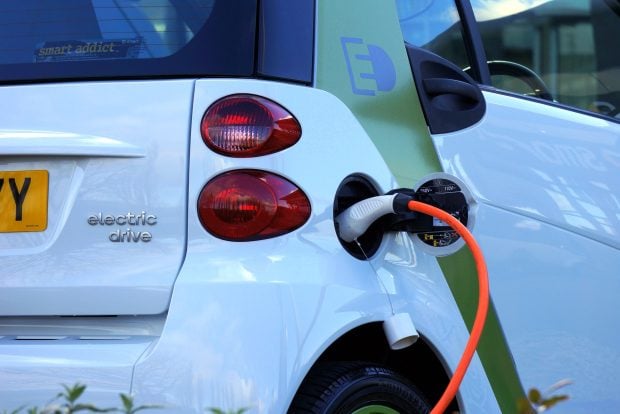UK’s green recovery plan lacks ambition and co-ordination, think tank warns

The UK government is lagging behind other countries in its green post-COVID recovery plans, according to a London-based think-tank.
The government’s ambition for a green recovery is “modest” compared with other countries, co-ordination of policies is poor and there is no plan for developing green skills, the Institute for Government (IfG) said in its Building a Green Recovery report last week.
OECD world leaders have all pledged to focus on a green recovery from the COVID pandemic, aligning their economic and social rebuilding with net zero carbon targets. In June this year, G7 leaders stated that at the heart of their economic recovery would be a “green agenda”.
Policy development
But “the ambition of the [UK] government’s green recovery package so far is modest compared with other countries’”, the IfG says. “Co-ordination of policies – across departments and with those involved in delivery – has been too weak and the government lacks a plan for developing green skills.”
Last November the government announced a £12bn (US$17bn) plan for a “green industrial revolution” to include investments in offshore wind, low carbon hydrogen, green public transport, and carbon capture and storage. It is also due to publish an already-delayed net zero roadmap before November this year, when the UK hosts COP26, setting out a route to its 2050 net zero carbon emissions target.
The report notes the complexity of policymaking in this field, highlighting the government’s Green Homes Grant scheme. In July 2020, the government announced its Plan for Jobs, including a Green Homes Grant that would help homeowners make energy efficiency improvements. At the time, the government estimated this would support 100,000 “green jobs”, alongside helping to transition to net zero. But the policy was abandoned after just six months as the government “failed to take account of limited capacity among suppliers”, the report states.
Progress elsewhere
Other countries are further ahead in publishing strategies, the report says. For example, the EU has a Pact for Skills plan, which aims to train five million people in green recovery skills and link up with Erasmus+, its education and training programme.
The report points to the EU’s economic recovery plan, which spans 2021 to 2027 and requires member states to commit 30% of their recovery spending to net zero transition.
As part of this, France has already committed €30bn (US$35.5bn) including a plan for housing retrofits and low carbon transport. Germany has also confirmed a €130bn (US$154bn) recovery package, the report states, including a national hydrogen strategy, retrofits for public buildings and an electric vehicle subsidy programme. And Spain, the hardest hit country economically, has outlined €49.2bn (US$58.3bn) in net zero programmes, which includes EU funding.
It is a similar picture in the US. The government’s proposed American Jobs Plan is an eight-year programme that includes US$174bn for the conversion to electric vehicles, US$50bn to make infrastructure more climate resilient, and US$46bn for the procurement of clean energy and low carbon tech.
Despite these commitments, however, research suggests that in terms of a proportion of all spending on the economic recovery, much more could be done to support green measures across the globe. OECD data shows that governments have allocated US$336bn to “environmentally positive measures”, but this accounts for just 17% of total COVID-19 recovery spending.
“The small proportion accounted for by green measures implies that, overall, recovery packages are not currently set to deliver the transformational investments needed,” the organisation notes.
Report recommendations
The report makes several recommendations to help the UK government align COVID recovery with net zero transition. It urges ministers to learn from the failure of its Green Homes Grant and improve the design of green recovery projects. “Policy makers need to be realistic about the capacity of local supply chains and consult with those involved in delivering changes,” it says.
If the government wants a shorter-term boost, it should look for “shovel-ready” schemes such as tree planting, the report advises. Where supply chains require more development, the government “needs to take a longer-term approach that encourages businesses to invest in developing capacity.”
Furthermore, the UK government must develop a green skills plan, which, the report says, has been a “major gap” in its green recovery so far. “The government says it wants to ‘support green jobs’ and has suggested there could be as many as two million new green jobs by 2030. But it has yet to offer a plan for how it will support these,” it says.
The UK urgently needs to assess the policies and investment needed to develop green skills, and set out its view on what skills are needed to support the green agenda. Furthermore, the report says, the government should establish where green jobs could best be located.
On an operational level, the institute says that co-ordination of the green agenda in government has so far been poor, recommending that the Treasury and the Department for Business, Energy & Industrial Strategy take responsibility for ensuring a green recovery. “Strong co-ordination will be needed to inform the design of policies and take a view of the overall green recovery package and the cumulative effect of policies across a range of areas,” it notes.
The UK should set out plans addressing this lack of coordination, the report says: “Unlike many EU countries, for example, the government has not published an overarching strategy that explains its vision for a green recovery, how the policies within it fit together or the underlying dependencies such as skills and investments that will be required to support it,” the report states.





















